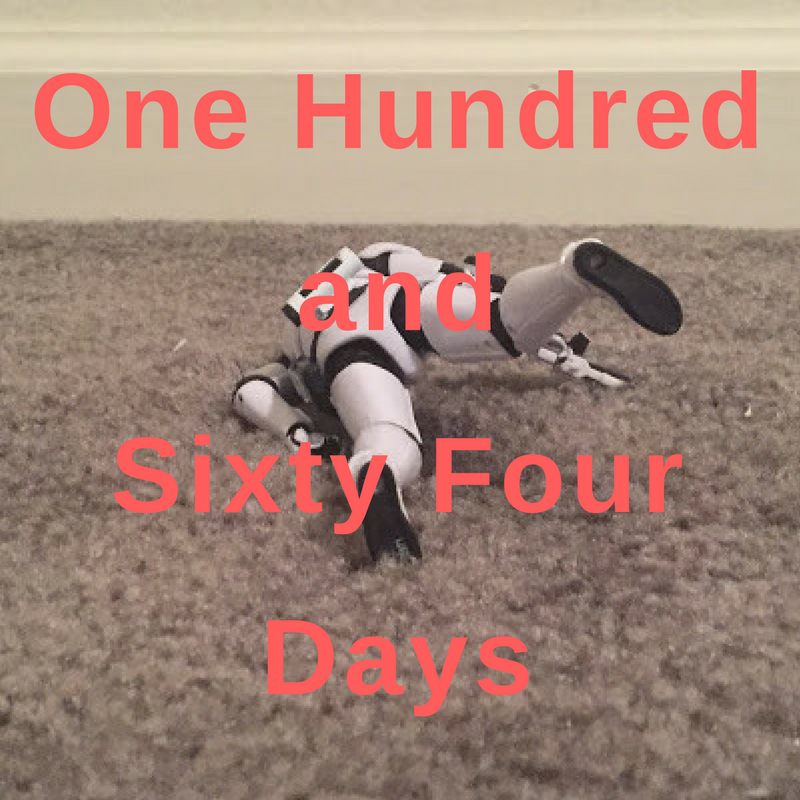Quick Hits to the FaceSean linked to my off-the-cuff musings - mostly reiteration of previous postings - on the subject of the Star Wars prequels. In the comments to Sean's post, Tom Spurgeon
said:
I think the sequels still suck, and I say that despite the fact I would love to think the opposite because this puts me on the side of people I'd much rather spend time annoying.
90 percent of the arguments for them I read don't seem genuine, either, they read like people staking out a position for the sake of taking a position.
I have no idea whether or not this was aimed at me in particular. In all honesty I have no real idea what other peoples' defenses of the prequels look like (other than the fellow I linked to the other day whose post inspired my initial thoughts). But, in the spirit of good humor, I'll speak to Spurgeon's assertion.
I don't just like the movies because I think they're thematically more satisfying - that would a pretty fancy way of saying that the movies suck but I'll find something to like so I sound smart. No, I really couldn't explicate the ways I think the Prequels "work" if I didn't think they "worked" as well as I do: they're fun movies, extremely enjoyable and highly rewatchable. Even when the action onscreen lulls - like, say, any of the times when the less-polished actors have to emote (you know who I'm talking about) - there's always
something fun happening around the edges.
In the original trilogy, for instance, pretty much any scene that Mark Hamill has to sell purely on his individual acting ability clunks like a brick down a well - but you don't really care because, hey, he's talking to Yoda, or he's looking out on a beautiful Tunisian desertscape with two suns on the horizon. Likewise, it's easy to forgive Hayden Christensen the fact that he really doesn't seem to understand how to not look like an idiot in the context of the film's hyper-stylized exaggerated fantasy idiom (a la
The Lord of the Rings). Not everyone can sell that type of material: not entirely coincidentally, the best Star Wars actors tend to be British or at least to have some kind of traditional theater background - think Liam Neeson, James Earl Jones or, obviously, Alec Guiness. They can speak in weighty sub-Shakespearean stentorian tones and pull it off. (The sole and major exception is Harrison Ford, but Han Solo is an old west outlaw getting by on quintessentially American charm and attitude - and, tellingly, his character has no analogue in the prequels, unless you count Jar Jar.) The original trilogy was set in a fairly accessible American idiom, the prequels were pure
sturm und drang. Hence, Christopher Lee and Ian McDiarmid steal every scene they're in, whereas Christensen and Natalie Portman are ineffable black holes of acting talent. But then, neither Hamill or Carrie Fisher were that great either. The former got by on the fact that nobody really liked Luke Skywalker to begin with so we didn't care all that much whether or not he could act (it's true! Luke is a dishrag); the latter due to the fact that she did have some authentic chemistry with Harrison Ford.
But no one goes to Star Wars to see actors acting: the whole point, whichever era we're talking about, is that the actors not get in the way of the spectacle, the
mise en scène, the fun stuff, the slam-bang. Just off the top of my head, these are the moments and ideas that pop out at me about each film:
The Phantom Menace- Everybody always talks about the last duel between Darth Maul, Qui-Gonn and Obi-Wan. Rightfully so: the last half-hour or so of this film is just masterfully put together. Just like the end of
Jedi, you've got at least four tracks going - the palace coup, the lightsaber duel, the Gungun assault, and Anakin's spaceflight. (This last bit may have seemed corny at the time but, in hindsight, seems creepy as fuck - they didn't see any problems in the fact that the kid was so good at blowing things up when he wasn't even trying?) But all the other elements take a backseat to the duel.
Everyone complained that Darth Maul was onscreen for such a small bit of the film's running time, but I think that's actually pretty cool: you wanted to see more, you wanted to know more about this incredible badass. One thing Lucas
almost always knows is that when it comes to bad guys - and even good guys of questionable ethics like Han Solo - it's far more interesting to show rather than tell. Darth Maul is so much more interesting as a deadly enigma than, you know, a dude with an origin.
That's how the movies created such a strong pull for fans, by creating the sensation that every bit character and walk-on part had a story, and even if you would never know what that story was, it created a depth of field that made the onscreen universe uniquely immersive. I'm glad I don't know more about Darth Maul, because the Darth Maul in my imagination is far cooler than the Darth Maul that might exist in whatever Extended Universe novelizations might exist. You could make the argument that this is the weakness at the heart of the prequels: giving Darth Vader an origin guts the character. But that horse already left the barn in 1983 with
Jedi - the moment we see his face and his tearful goodbye to Luke we know he's not just a villain but a tragic figure despite his lifetime of evil. It's far more convincing to argue that Boba Fett's origin in
Attack of the Clones did that "character" - character is too strong of a word considering how much of an intentional cipher the guy was - a mortal harm. Sure enough, Lil' Boba's adventures with his dad in Episode 2 provide one of the most wrong-footed sub-plots in the whole series.
- The pod race.
The Phantom Menace pissed people off in part, I believe, because it was actually a childrens' adventure film and not the gritty, hardcore action film that the aged fanbase believed they wanted. But, you know, these
are kids movies. This scene is probably note-for-note the purest distillation of awesome moviemaking skill in the entire series - yes, all six movies, I'd say. There isn't a kid on the planet who wouldn't be floored by seeing this in a theater - hell,
I was floored, and I can still to this day remember all the different thunk-a-thunk-a noises the different pod chariots made in the deafening THX theater sound.
Attack of the Clones- Looking back I think this is the weakest of the three, mostly because it carries the weight of a great deal of the exposition for Episode 3. But even with all the infodumps, there's still the matter of the last forty-five minutes or so, against which the busy final act of
Phantom Menace seems positively sedate in comparison.
There's a moment in the ramp up to the climactic battles - hell, we'll call it The Moment - when things have been going haywire for a while, Padme and Anakin and the Droids are in trouble, and it looks like things are only going to get worse. And then: we see a close up of boots walking slowly down a corridor. Brown boots and beige leggings, a purposeful stride. We didn't see him arrive but we know immediately who it is: Mace Windu.
Now, there's an old saw from Chekhov that goes something along the lines that if you show a gun in the first act, it needs to go off by the third. Likewise: if you give Samuel L. Jackson a lightsaber, you have to eventually see him go
buck wild with that lightsaber. He stayed in the background of Episode 1, but by the end of Episode 2 it was time to see some action. I still remember the reaction when Jackson first flipped on his lightsaber, going from wise Jedi master to Bad Mother Fucker in as much time as it took to hear the electric "vwoooosh" - in all my years I've never heard as ecstatic a reaction from any film audience,
ever, as that moment where Mace Windu first throws down. The crowd exploded.
When Yoda finally decides to join the fray, it's just
sick. People had been waiting not three years as in the case of Windu but
23 years to see just what that damn green Muppet could actually do - and sure enough, seeing him jump around looked about as silly as you probably imagined. But you know, silly or not, he was still
hardcore. You can argue that a great deal of
Attack of the Clones is fanservice, but you know what?
That's kind of the point. Star Wars is not great art, it does not exist to defy expectations: it exists to meet and exceed expectations of both fans and general audiences who want a thrilling carnival ride of a movie. People had been waiting almost a quarter-century to see what Yoda could do, and when he finally did it, it was pretty damn amazing.
Revenge of the SithThis is a hard film to watch, in some respects, because it's really quite relentless. The earlier prequels are very fun movies, full of action and thrills and suspense. But as this one plays out the action becomes more and more desperate, the fights become more brutal, the enemies more unrelenting. The good guys lose, they lose big. I know I keep reiterating the point that these are kids movies, but if I were a parent I don't think I'd show this to a younger kid, even if there's nothing in the five other films I would find too objectionable: this is just too intense. The sensory overload of the earlier, lushly-crafted, downright bucolic prequel films steps over the line into garish confusion here, and I think that's a purposeful choice: the beautiful digital paradise of Episode 1 has become hectic, fraught and downright sinister.
If there's one battle that stands out in a film full of battles, it's Obi-Wan's relentless duel with General Grievous. Now, General Grievous is a great character design that profts greatly from Lucas' "less is more" approach to supporting villains. I don't know anything about the guy other than what we see on film: he's an evil cyborg general, maybe an ex-Jedi (or Sith?) who hates the Jedi with a passion, enough so that he collects their weapons like trophies and possesses an almost unparalleled skill with the lightsaber. But you know when he steps onscreen that he's a bad dude. Not only that, he's got character - the way his spider-like robot body whirs and slides is vaguely disturbing. He's got this cough thing he does after he's been fighting the Jedi for a while, just one of those small throw-away gestures that makes the monster seem like he might actually be made of three-dimensions and not just pixels on a hard drive. When he's fighting he digs in his heels and stalks like Arnold's Terminator - just relentless, implacable and inhuman.
- But the image I remember most from Episode 3 isn't one of the battles - it's the last shot. Obi-Wan gives the baby Luke to Owen and Beru and wanders off into the desert. Even after everything has occurred and Anakin has become Vader, you know that Owen and Beru are relatively safe because of their connection to Anakin's mother - and hiding the child with them is the safest choice, the proverbial "hiding in plain sight". Of course, eventually things change - the Rebellion comes home after those strange Droids are found wandering the desert, and when people start asking questions about Ben Kenobi everything starts to fall apart and people die. But that last shot, in the wake of the storm after the Jedis' defeat and the fall of the Republic - drawing the explicit parallel between Luke's arrival and later Luke's departure from home at the beginning of Episode 4 - that's the shot the whole prequel trilogy was building to, the bridge between the past and the present. It's the crux of everything that happened and everything that will happen - a moment of bittersweet triumph, but a triumph nonetheless, A New Hope for the future of the Republic cradled in the arms of his family. It's, basically, the apogee of Star Wars in one single shot, all the bluster and sentiment, epic scope and cheesy serial origins, the melodrama and the ham-fisted intellectualizing, the emotional pull of childish nostalgia and the legitimate gravity of melancholy adolescence. It's all there.









